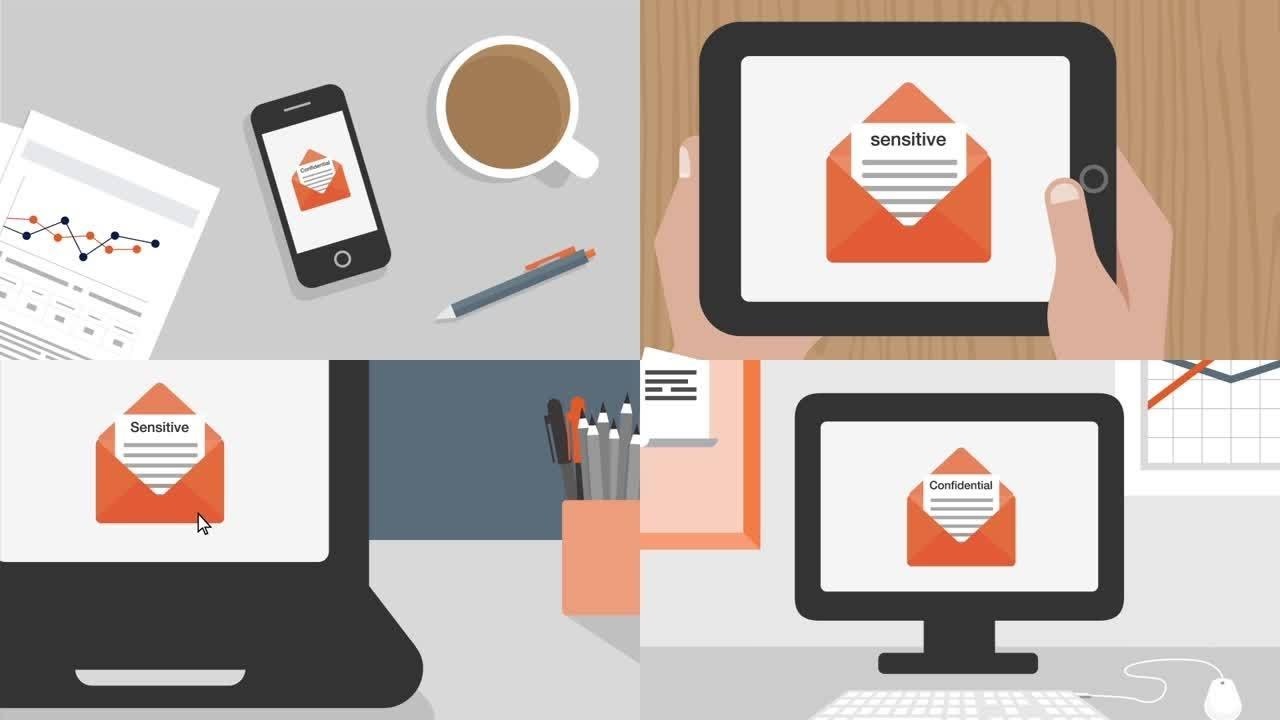Read Time:2 Minute, 40 Second
When you send a message without encryption, it’s like sending a postcard that anyone reads from sender to recipient. Unencrypted messages expose your communications to various risks with far-reaching implications. Here are some key consequences of not using encrypted messages:
- Privacy invasion – Without encryption, your messages are vulnerable to interception by unauthorized entities, including cybercriminals, data brokers, and even government agencies. These actors eavesdrop on your conversations, extract sensitive information, and build detailed profiles about your personal life.
- Data breaches – Unencrypted messages are a prime target for hackers and cybercriminals. If your messages fall into the wrong hands, your contacts and any organizations you communicate with. Data breaches lead to identity theft, financial loss, and reputation damage.
- Cyber attacks – Unencrypted messages are an entry point for malware infections, phishing attacks, and other cyber threats. Malicious actors exploit vulnerabilities in unsecured messaging systems to deliver malware, compromising your devices and networks.
- Loss of confidentiality – Whether discussing personal matters, financial details, or sensitive business information, encryption ensures that your conversations remain confidential. Without encryption, you risk revealing proprietary information, trade secrets, or personal details that could be exploited for blackmail or extortion.
- Surveillance and censorship – Government agencies and authoritarian regimes often conduct mass surveillance, targeting unencrypted communications. Your messages might be monitored, analyzed, or censored without your awareness, violating your freedom of expression and privacy.
- Misinformation and propaganda – Unencrypted messaging systems are susceptible to manipulation by bad actors. Without encryption, malicious entities find it easier to spread misinformation, propaganda, or fake news, which can influence public opinion and lead to social unrest.
- Financial loss – The consequences of unencrypted messages can also have direct financial implications. Data breaches and cyber-attacks can result in financial fraud, identity theft, and unauthorized transactions. The impact ranged from minor inconveniences to significant economic losses and damaged credit scores.
Protecting yourself and your organization
Securing your messages isn’t solely about personal privacy; it’s also critical news for protecting sensitive information and minimizing risks to your safety and livelihood. Here are some key steps to protect yourself and your organization:
- Adopt secure messaging apps – Opt for messaging apps that offer end-to-end encryption. These applications ensure that your device’s communication is encrypted and only decrypted by the intended recipient.
- Enable encryption on devices – Enable full-disk encryption on your computers, laptops, and mobile devices. Most modern operating systems provide built-in encryption tools to protect your data in case your device is lost or stolen.
- Secure your email communications – Email is often a weak link in security. Switch to email providers that offer end-to-end encryption to ensure your messages remain confidential.
- Utilize virtual private networks – Use a VPN to encrypt your internet traffic, especially when connecting to unsecured public Wi-Fi networks. This prevents third parties from intercepting and logging your data.
- Educate yourself and others – Stay informed about digital security risks and best practices. Make your family, friends, and colleagues aware of the significance of encryption and secure messaging practices to foster a culture of cybersecurity consciousness.
Encryption is a fundamental tool in the ongoing online security battle. By securing your messages, you assert your right to confidentiality, safeguard sensitive information, and help foster a safer digital world.


